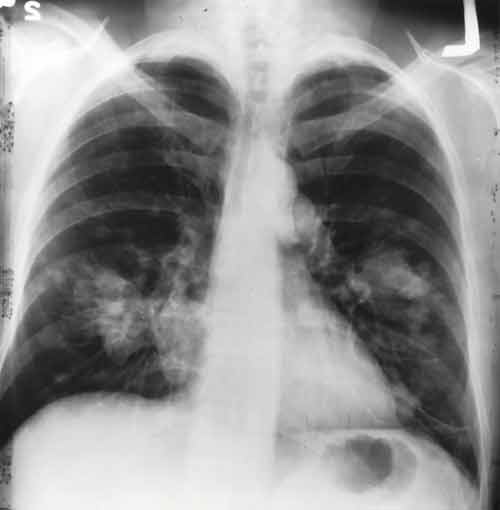The Food and Drug Administration (FDA) granted approval for durvalumab and the combination of lazertinib with amivantamab-vmjw as innovative treatments for non-small cell lung cancer (NSCLC). These approvals represent a major advancement in the battle against this challenging disease, offering new hope for patients with specific NSCLC subtypes.
Durvalumab with Chemotherapy
On August 15, 2024, the FDA approved durvalumab in combination with platinum-containing chemotherapy as a neoadjuvant treatment, followed by single-agent durvalumab as adjuvant therapy for adults with resectable NSCLC. This approval targets patients with tumors ≥ 4 cm and/or node-positive disease, specifically those without known epidermal growth factor receptor (EGFR) mutations or anaplastic lymphoma kinase (ALK) rearrangements. The approval was based on the results from the AEGEAN trial, a randomized, double-blind, placebo controlled study involving 802 patients with previously untreated resectable NSCLC (Stages IIA to IIIB).

© National Cancer Institute | unplash.com
The trial demonstrated that durvalumab, combined with chemotherapy and followed by maintenance durvalumab, significantly improved event-free survival (EFS) compared to the placebo arm. The median EFS was not reached in the durvalumab group, while it was 25.9 months in the placebo group, representing a 32% reduction in the risk of disease progression or recurrence. Moreover, the pathological complete response (pCR) rate was substantially higher in the durvalumab group (17%) compared to the placebo group (4.3%). These results underscore the potential of this regimen to enhance long-term outcomes for patients undergoing surgery for resectable NSCLC.
However, the treatment comes with potential risks. Common adverse reactions include anemia, nausea, fatigue, and musculoskeletal pain. Additionally, 1.7% of patients in the durvalumab arm were unable to undergo surgery due to adverse reactions.
Lazertinib with Amivantamab
On August 19, 2024, the FDA approved lazertinib in combination with amivantamab-vmjw for the first-line treatment of locally advanced or metastatic NSCLC with specific EGFR mutations (exon 19 deletions or exon 21 L858R substitution mutations).
The approval was supported by the MARIPOSA trial, which involved 1,074 patients and compared the combination of lazertinib and amivantamab with the current standard, osimertinib monotherapy. The combination therapy demonstrated a significant improvement in progression-free survival (PFS), with a median PFS of 23.7 months compared to 16.6 months for osimertinib alone. This represents a 30% reduction in the risk of disease progression.
While overall survival (OS) data are still maturing, no detriment was observed at this stage of analysis. However, the combination therapy is associated with serious side effects, including a notable risk of venous thromboembolic events (VTE), necessitating the use of prophylactic anticoagulation for the first four months of treatment.
As these therapies become integrated into clinical practice, ongoing monitoring of their long-term efficacy and safety will be crucial to maximizing patient benefits.
References
- “FDA approves neoadjuvant/adjuvant durvalumab for resectable non-small cell lung cancer,” FDA. https://www.fda.gov/drugs/resources-information-approved-drugs/fda-approves-neoadjuvantadjuvant-durvalumab-resectable-non-small-cell-lung-cancer
- J. V. Heymach et al., “Perioperative Durvalumab for resectable Non–Small-Cell lung cancer,” New England Journal of Medicine, vol. 389, no. 18, pp. 1672–1684, Nov. 2023, doi: 10.1056/nejmoa2304875.
- “FDA approves lazertinib with amivantamab-vmjw for non-small lung cancer,” FDA. https://www.fda.gov/drugs/resources-information-approved-drugs/fda-approves-lazertinib-amivantamab-vmjw-non-small-lung-cancer
- B. C. Cho et al., “Amivantamab plus Lazertinib in Previously Untreated EGFR -Mutated Advanced NSCLC,” New England Journal of Medicine, Jun. 2024, doi: 10.1056/nejmoa2403614.








